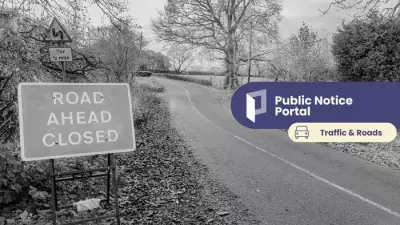
Chancellor Rachel Reeves is poised to deliver a significant Autumn Budget on November 26, with income tax reforms at the forefront of her agenda. The Labour Party Chancellor has acknowledged the need to confront difficult economic realities, stating she must 'deal with the world as I find it, not the world as I might wish it to be.'
Ms Reeves has emphasised that those with the 'broadest shoulders' should contribute more, but also suggested that 'we all need to do our bit,' indicating potential widespread impact. She has not ruled out breaking her party's pledge to avoid raising income tax, VAT, or National Insurance, vowing not to 'sweep those challenges under the carpet.'
Potential Tax Increases on the Table
Financial experts have outlined five primary ways the Chancellor could alter the income tax system. A 1p increase in the basic rate of tax, from 20% to 21%, is considered one of the most straightforward options. According to Laura Suter of AJ Bell, this change would cost taxpayers up to £377 annually, with anyone earning £50,270 or more facing the maximum financial hit.
Alternatively, the government could target higher earners. Adding 1p to the higher and additional rates of income tax is another possibility. HMRC data suggests a 1p rise on the higher rate would generate an extra £1.6bn in 2026/27. A person earning £55,000 would pay an extra £47 a year, while someone on £75,000 would see a £247 increase.
The most impactful measure for many would be increasing all income tax rates by one percentage point. This combined approach would yield almost £11bn a year by 2029–30. For an individual, the cost would be significant: someone earning £35,000 would pay £224 more, a person on £55,000 would face a £424 increase, and an individual with a £75,000 income would be hit with a maximum £624 extra per year.
Stealth Taxes and Pensioner Impact
Another strategy involves a 'two up, two down' approach, where income tax rates are increased while National Insurance rates are lowered. Tom Selby of AJ Bell notes this would allow the government to 'claim to be protecting the pay packets of working people,' but it would disproportionately affect retirees. A pensioner with a £35,000 taxable income would face a tax hike of almost £450.
A more stealthy option is to extend the current freeze on tax thresholds by another two years. As Ade Babatunde from Rathbones explains, this is 'taxation by stealth: the rates stay the same, but a bigger slice of your pay disappears into the taxman’s coffers' as inflation pushes salaries into higher tax brackets.
With the Autumn Budget announcement scheduled for November 26, UK households are bracing for potential changes that could directly impact their finances. The Chancellor's final decisions will reveal the government's chosen path for navigating the nation's economic challenges.





